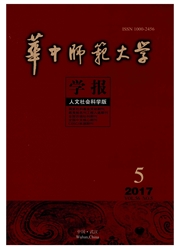

 中文摘要:
中文摘要:
在西方哲学史上,亚里士多德、布伦塔诺、罗素等人都曾对心理内容问题予以关注和思考。当代心理内容研究是传统意向性研究的深化和拓展,并已成为探索心灵世界的一个专门领域。虽然当代心理内容研究的流派众多且争论不断,但学者们仍有着诸多共同的研究旨趣,如对命题角色问题、内容自然化问题等的关注,由此而形成了三大研究传统:分析传统、现象学传统和马克思主义传统。究其实质,心理内容是主体心灵指向对象的方式,它体现了心灵把握世界的特有能力,主要在四个维度上被呈现出来,即语言维度上的心理内容(指语言表达主体所理解或把握的语句或语词的意义)、逻辑维度上的心理内容(指用来呈现语句意义的命题)、现象学维度上的心理内容(指经验内容)和表征维度上的心理内容(指心灵中对象被表征的方式)。
 英文摘要:
英文摘要:
The notion of mental content has its origin from the human inquiry of their own minds' puzzle.Many philosophers Aristotle,Kant,Brentano,Frege,Russell,etc.)considered the content problem from different viewpoints.Researches on mental content are deepened and further developed from the traditional work on intentionality,and have been a special field of exploring the world of mind.There are many different schools of mental content problems,and the role-playing of proposition has been concerned,more and more debates on these,which gradually form the three research traditions:the analytical,the phenomenological and the Marxist.Mental content is the way that the object is presented by the mind,and shows the characteristic aspects that the mental states have,and the mind' s particular capacity to grasp the world,which takes on four dimensions from language,logic,phenomenology and representation.
 同期刊论文项目
同期刊论文项目
 同项目期刊论文
同项目期刊论文
 期刊信息
期刊信息
